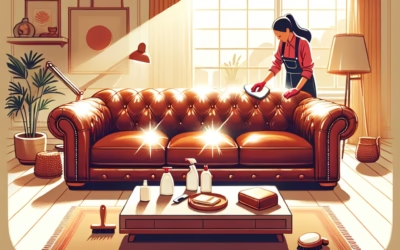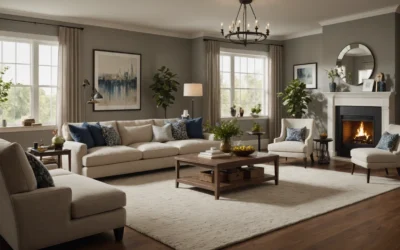
Mastering Visual Flow: Essential Tips for Crafting Captivating Art
Creating captivating art isn’t just about the subject or the medium; it’s equally about how you guide the viewer’s eye through your work. This is known as visual flow, and mastering it can elevate your art from ordinary to extraordinary. Whether you’re a seasoned artist or just starting, understanding visual flow is crucial to crafting pieces that resonate with viewers.
In this comprehensive guide, we’ll explore essential tips for mastering visual flow, helping you not only improve your artistic skills but also better engage your audience. You will learn about the components that contribute to effective visual flow, practical techniques to implement in your artworks, and actionable insights designed to inspire your creative process.
Here’s what you can expect in the sections below:
- An overview of visual flow and its importance
- The key elements that create effective visual flow
- Practical techniques to enhance your artistic flow
- Real-world examples and case studies
- FAQs addressing common concerns
- Steps to continue your learning journey
Understanding Visual Flow: A Deep Dive
Visual flow is the path that the viewer’s eye takes as it navigates through an artwork. Mastering visual flow involves understanding several key components:
The Role of Composition
Composition refers to the arrangement of visual elements within the artwork. Effective composition directs the viewer’s eye, creating a pathway through the piece.
Color and Tonality
Colors can guide attention and evoke emotions. Understanding color theory is essential for creating depth and interest in your work.
Value Contrast
Using value contrast—how light and dark areas interact—can emphasize focal points and enhance flow.
Key Elements for Effective Visual Flow
Creating effective visual flow involves several essential elements:
Leading Lines
Leading lines naturally guide the viewer through your composition. Look for ways to include lines that lead to focal points.
Balance and Symmetry
Balanced compositions feel stable and inviting. Explore asymmetrical arrangements to create dynamic tension and interest.
Repetition and Rhythm
Repetitive elements create rhythm, making your art visually engaging while also reinforcing your message.
Practical Techniques to Enhance Visual Flow
Here are actionable techniques you can apply right away:
Using Thumbnail Sketches
Before diving into a full artwork, sketch thumbnails to experiment with different compositions and visual flows.
Creating Focal Points
Determine where you want the viewer’s attention to linger and enhance this area through contrast, color, or detail.
Incorporating White Space
White space allows breathing room in your compositions and can aid in guiding the viewer’s eye more effectively.
Case Studies: Successful Visual Flow in Art
Real-world examples show how effective visual flow can captivate audiences:
Case Study: Van Gogh’s Starry Night
Vincent Van Gogh masterfully uses swirling lines and vibrant colors to guide the viewer’s eye through the night sky, creating a dynamic visual flow that enchants audiences.
Case Study: The Composition in ‘The Last Supper’
Leonardo da Vinci’s arrangement of figures directs attention towards the central figure of Jesus, demonstrating the power of focal points in establishing visual narrative.
Visual Flow Comparison: Good vs. Great Art
| Aspect | Good Art | Great Art |
|---|---|---|
| Composition | Static elements | Dynamic leading lines |
| Color Use | Basic palette | Emotionally charged hues |
| Viewer Engagement | Limited interaction | Invokes emotion and thought |
Frequently Asked Questions
What is visual flow in art?
Visual flow refers to the pathway formed by the viewer’s eye as it moves through a composition, influenced by elements like lines, colors, and balance.
How can I improve the visual flow in my art?
Improving visual flow can be achieved through techniques such as using leading lines, establishing focal points, and balancing elements effectively.
Why is visual flow important?
Effective visual flow captivates viewers, guiding them through the artwork and evoking emotional responses, ultimately increasing engagement.
Can you provide an example of visual flow in famous paintings?
Starry Night by Van Gogh showcases effective visual flow through swirling lines and vibrant color contrasts that draw the viewer’s gaze across the canvas.
What tools can I use to analyze visual flow?
Software like Adobe Photoshop and Procreate can help artists analyze and sketch compositions to evaluate visual flow effectively.
Conclusion & Next Steps
Mastering visual flow is essential for any artist looking to create captivating work that resonates with audiences. By implementing the tips discussed, you can enhance your artistic abilities and create powerful visuals that engage viewers on a deeper level.
Start exploring these strategies today and see how your art transforms. For more insights, check out our related articles on color theory and composition techniques.
Content Disclaimer
The information provided in this article is for educational purposes only. For professional advice regarding specific artistic techniques or practices, please consult an expert in the field.
Categories
- Accent Walls & Ceilings (84)
- Art Curation & Gallery (83)
- Bedding Style Trends (89)
- Bedroom Makeover (96)
- Bohemian & Eclectic Styles (80)
- DIY & Budget-Friendly Decor (78)
- Eco-Friendly Design (83)
- Furniture Care (87)
- Home Decor & Design Ideas (181)
- Home Wellness Spaces (103)
- Integrated Outdoor Living (91)
- Japandi Style (84)
- Kids and Nursery Decor (73)
- Living Room Decor (99)
- Mix & Match Techniques (95)
- Modern & Contemporary Design (88)
- Rug Sizing & Placement (89)
- Scandinavian Design Inspiration (51)
- Seasonal Home Decor (100)
- Small Space Solutions (93)
- Wall Art & Painting Tips (94)
Recent Comments
Archives
Product Gallery
-
Majestic African Wildlife Canvas Art for Stylish Home Decor
Rated 5.00 out of 5 -
Cozy Irregular Green Plush Rug for Nordic Living Spaces
Rated 5.00 out of 5$44.23 – $278.89Price range: $44.23 through $278.89 -
Scandinavian Geometric Area Rugs for Stylish Home Décor
Rated 5.00 out of 5$33.15 – $502.10Price range: $33.15 through $502.10













